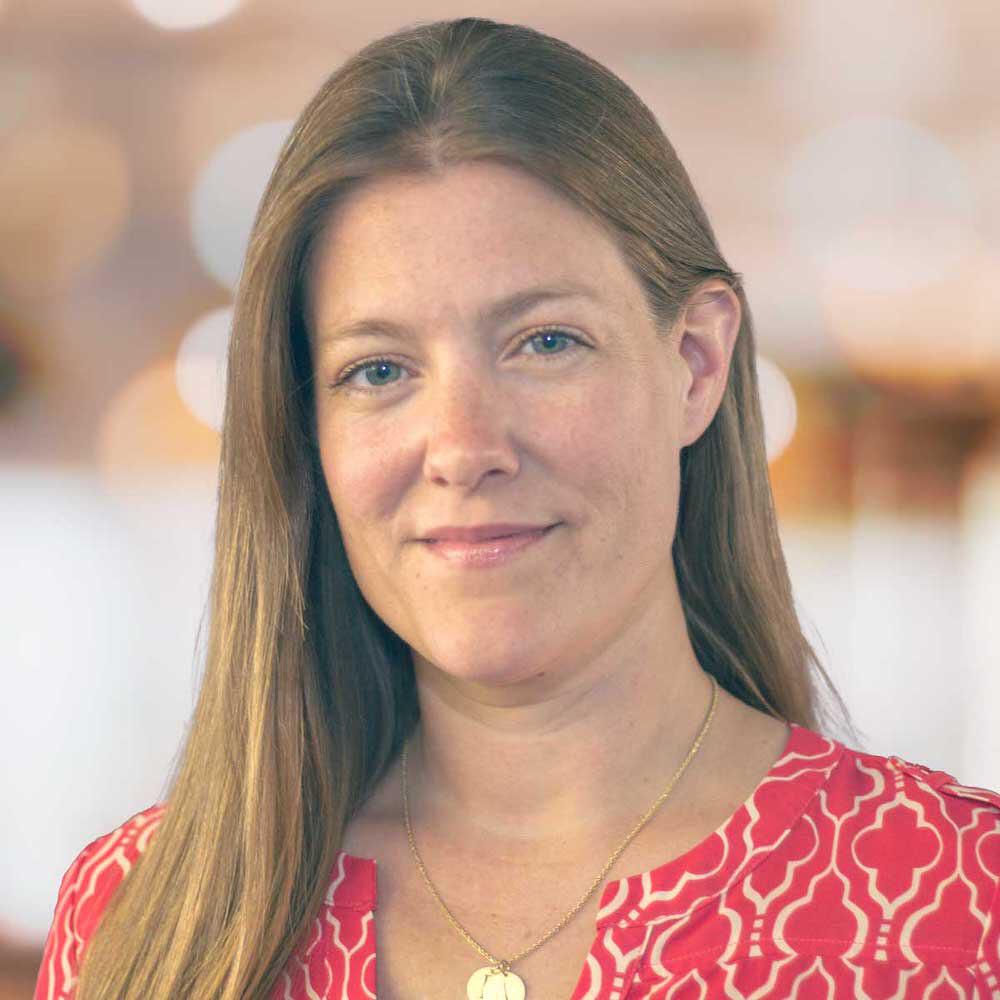Twenty years ago, Joanna Parke’s career as an engineer seemed set. Her father, himself an engineer, instilled her passion for the industry from a young age. Parke went on to earn a bachelor’s degree in electrical engineering with a minor in computer science and held engineering positions at Sapient and Epicentric.
In 2003, she landed an engineering role at global software company ThoughtWorks and quickly took on leadership positions. The company founder, recognizing her propensity for working with people, tasked her to lead a new program focused on entry-level diversity hiring that Parke says provided her first exposure to the people side of the business. From there, she became managing director of the company’s North American practice and, in 2018, was tapped for another new role.
“The CEO came to me and said, ‘Hey, I’ve been thinking about this. [Talent] is a place where we’ve always been really strong but we’re growing really fast and want to make sure this continues to be a strength of ours.’ So, they created the Chief Talent Officer role and I agreed to take it on,” she says.
Parke recently shared lessons from that journey, including combatting bias as a woman in tech.
HRE: What has been the pandemic’s greatest lesson for you on the employer-employee relationship?

Joanna Parke
Parke: Two things: One is a strength of ours and the other is an area where I felt we had to step up. We have always had a strong aspect of our culture around transparency; we’re very open, we encourage people to have difficult conversations, we don’t sugarcoat things. And that has served us really well. So, last March, we were very open with our people about what was happening in the business, what it means for us. One of the principles we have is this is a collective culture—we’re all in this together and we all make sacrifices but our goal is to protect the employment of every person. That level of trust and radical transparency served us really well in the last year.
At the same time, there were social crises happening not just here in the U.S. but around the globe. We already had a strong foundation on which to have those conversations but the part where I feel like we were caught a little off guard was the support we needed to provide on the mental health front. We had to really step up, from benefits to services to making sure we’re just checking in on our people, making sure people aren’t burning themselves out and giving them opportunities to step back and slow down.
HRE: What has been the driving force behind the organization’s success in increasing female representation in tech roles?
Parke: It started with clear expectations from the CEO. We started this journey 10 years ago and our CEO made a declaration that our entry-level program going forward would be 50/50 gender equal, which was a huge change for us at the time. Then there were also measurable stretch goals that focused people to think differently. We got creative and started looking for people in unexpected and unusual places, like looking for developers outside of the computer science department. We had return-to-work programs for women who left the workforce and would like to come back with some proper retraining. And we also took a holistic approach to look not just at sourcing and recruiting but policies, culture, inclusivity and advancement.
See also: HR Tech Conference is back in person this fall. Here’s what’s on tap
HRE: As a woman in tech yourself, did you find barriers or bias in the field?
 Parke: I started out with a strong foundation. I was encouraged from a young age as a girl to pursue engineering. My father was an engineer and very much set that out as a path for me. So, I think that helped but yes, of course, every woman in tech has likely faced bias at some point, whether it’s very extreme or less overt. I’ve been fortunate enough not to have gone through much of that but many of my female colleagues have. But everyone experiences microaggression levels of bias.
Parke: I started out with a strong foundation. I was encouraged from a young age as a girl to pursue engineering. My father was an engineer and very much set that out as a path for me. So, I think that helped but yes, of course, every woman in tech has likely faced bias at some point, whether it’s very extreme or less overt. I’ve been fortunate enough not to have gone through much of that but many of my female colleagues have. But everyone experiences microaggression levels of bias.
HRE: What role do you think internal talent mobility will play in enabling companies to bounce back faster?
Parke: I’m really passionate about this topic of internal talent mobility. Companies tend to undervalue the understanding of their business that tenured employees have. Especially as they embark on a digital transformation, they think they need to go out and hire people with new digital skills. That’s true to an extent but I think they also need to be focused on reskilling and upskilling. We know there’s a talent shortage, and it’s only getting worse, so it’s going to become even more important in the private sector for companies to invest in and build programs to upskill and reskill their talent. I think it has the added benefit that you create this environment where people are always learning and, when people have new challenges, they’re more likely to stay.
Related: 5 ways to reimagine internal talent mobility
HRE: What’s your advice for employers looking to take the first step to enhance internal hiring?
Parke: Start small. That’s what we did a few years ago. We were very email-based and would just post over email when new leadership roles would come up. It certainly takes more work than selecting an obvious candidate but we found we were pleasantly surprised sometimes by someone who raised their hand that maybe we didn’t know as well but who can turn out to be an even better fit than someone else you may have been thinking of before. If nothing else, it can help validate your decision: Even if you end up in the same place, you were more thorough in who you were looking at. And on the flip side, it shows employees there is opportunity. If you start small and expand over time the number of roles or assignments that are posted, you start to build expectations that something one day can turn into something for them.
HRE: If your career hadn’t taken you into HR, what field do you think you’d be working in today?
Parke: One of two places: I’d probably still be in a general business leadership role, like the managing director role I played before, or at some point going back into tech or coding. I would love to get back into it; I miss it.
HRE: Do you have a personal motto or mantra to help you get through challenging times?
Parke: I try to think a lot about perspective. When we’re caught up in our own challenges, problems or stresses, it can be really hard to gain perspective. But if you’re able to think about what’s happening in the broader world and all the things you have to be grateful for, that really helps me to recenter. And also, it’s so simple and repeated, but it’s so true: You have to put on your own oxygen mask first. This is something I try to tell the people I coach and my own team: You’re no good to anyone if you get to the point where you burn out. It’s so important to take that time to take care of yourself and then come back to it when you’re refreshed.